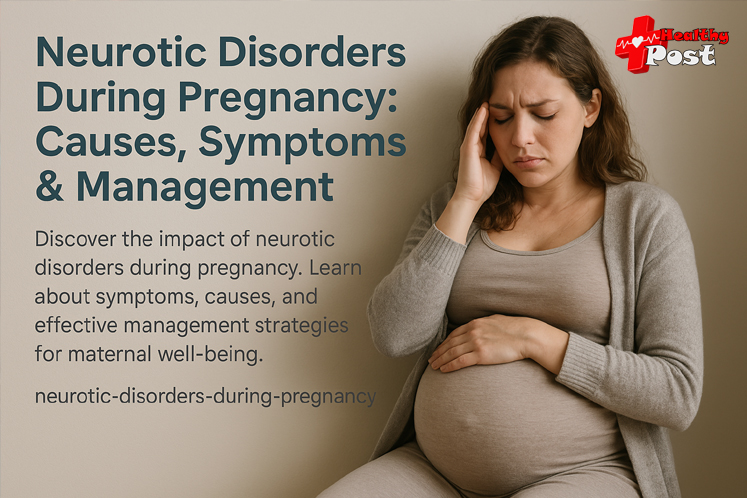
Let’s know about Neurotic disorders during pregnancy
Pregnant women are amazing, during pregnancy their mood, desires, needs, reactions to the world around them and self-perception change with geometric progression. In the morning they can enjoy a new day, get irritated by the heat or cold at home during the day, and cry from a new melodrama in the evening. And it is during this joyful anticipation of the birth of a child that the female sex is most susceptible to stressful conditions and the development of neurotic disorders, in particular depression and anxiety. The latter, by the way, are more likely to continue in the postpartum period.
Severity of symptoms
According to various statistics, the incidence of depressive states ranges from 8 to 20% depending on the severity of symptoms. The development of neurotic disorders is influenced not only by fluctuations in estrogen levels, but also by various psychosocial factors, such as unwanted pregnancy, lack of support, family problems, low level of education, problems with work and others.
The study “Neurotic Mental Disorders and Family Functioning in Pregnant Women” by medical science candidate and psychotherapist Igor Kolesnikov showed the main psychotraumatic events in the lives of patients. These include:
- conflicts with spouse – 60%;
- social and material problems – 37%;
- conflicts at work – 26%;
- conflicts with parents – 23%;
- death of a relative – 6%;
- other – 24%.
— As a result of the conducted screening study, neurotic depressive disorders were found in 8.2% of pregnant women, — says the psychotherapist. — Based on the leading emotion in the structure of the affective symptom complex, dominant syndromes were determined: depressive, anxious-depressive, depressive with obsessive phenomena.
However, regardless of the underlying causes, one thing is important – they all affect the condition of the expectant mother and her fetus. And this can negatively affect both well-being and lifestyle. A woman in such a psycho-emotional state can drink alcohol and illegal substances, refuse proper medical supervision, eat poorly or not eat at all for a long time. Therefore, it is so important to identify the problem at the very beginning and provide quality medical care so that in the future the mother does not experience neurotic disorders and can take care of the baby.
Surprisingly, depression and anxiety can contribute to an increased risk of needing a primary cesarean section. Thus, scientists from the University of Michigan analyzed data from the state’s maternity ward from 2008 to 2017. Among 360,000 women in labor, almost every fourth required surgery. During the data adjustment, the researchers came to the conclusion that the risk of a cesarean section increases by 3.5%.
“Caesarean section is the main factor in the development of various diseases in mothers, and we must minimize all risks,” say scientists.
Imperial College London
Specialists from Imperial College London also found that half of pregnant women with severe toxicosis suffer from depression and are forced to give up their usual life activities, especially work, for a long period of time.
Do neurotic disorders affect children? Of course! Premature birth, underweight, emotional and behavioral disorders, developmental delays are just some of the possible consequences that parents may face. Which once again confirms the importance of timely response to depression and anxiety in the mother. It is important to understand that the phrase “This is temporary. I had it, and it will pass for you too” will not work in all cases. Only the help of a specialist with the appointment of appropriate therapy can minimize and neutralize negative manifestations.


3 thoughts on “Let’s know about Neurotic disorders during pregnancy”